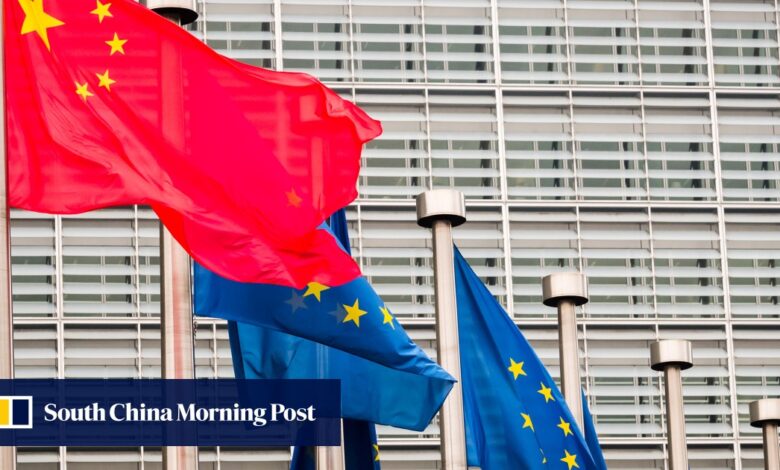China’s EU chamber looks to ‘move the needle’, but is Beijing’s self-reliance push getting in the way?

[ad_1]

A leading European business association in China has laid out a bevvy of suggestions for how China can improve its economic prospects, including scaling back its push for self-reliance in the tech sector, in a report published on Tuesday.
More than 1,000 individual recommendations were made by the European Union Chamber of Commerce in China in its annual position paper, which called for tangible steps from Beijing to cultivate a “transparent, consistent and predictable” regulatory environment on its road to recovery.
“At the top of a growing list of questions about the Chinese market is, what kind of relationship does China want to have with foreign enterprises,” the chamber asked.
China’s ‘crisis of confidence’ curable, EU business head says in call to action
China’s ‘crisis of confidence’ curable, EU business head says in call to action
The chamber’s worries are far from novel. Foreign companies have long called on Beijing to clarify policy ambiguities, as leadership’s emphasis on self-reliance and national security often appears at odds with a stated desire for steady economic expansion.
Drawing a parallel with the Heisenberg uncertainty principle in quantum mechanics, chamber president Jens Eskelund commented on the doubts plaguing foreign players as they attempt to plan for the future.
“[It almost feels like] two very distinct, disconnected realities,” Eskelund said, adding that the tightening of security controls and regulations makes it difficult to roll out the red carpet for foreign businesses.
[The] time is now for the Chinese government to convince the foreign business community that China is a competitive and attractive investment location
Eskelund said he expected to see relatively modest investment inflows over the short term, but the real challenge would be whether Beijing can “offer the menu that investors are craving” in the long term.
“What I’m worried about is, three years from now, are we going to see a rebound? [The] time is now for the Chinese government to convince the foreign business community that China is a competitive and attractive investment location,” he said.
The chamber’s report also dedicated plenty of space to China’s onshoring of production, alleging that such a move heightens the risk of foreign players diversifying away from the country to reduce “dependence sooner rather than later”. The EU’s own de-risking activities, it claimed, are expected to be less restrictive.
China’s consultancy crackdown is scaring away investors, experts warn
China’s consultancy crackdown is scaring away investors, experts warn
To ameliorate this phenomenon, the chamber suggests that the country become more integrated with the global economy and steer away from what it terms as excesses in the drive for self-reliance. China should, the report argued, “develop nuanced strategies for strengthening supply chains that do not err towards trade protectionism”.
The report also called on the Chinese government to optimise its policymaking by remaining open to discussion and dialogue.
“A narrowing space for discourse and critical voices will lead to Chinese authorities missing out on feedback,” it said, adding that this would do little to “shape policies capable of sustaining China through the next stage of its economic development”.
Although movement on these fronts had appeared to take place in recent months, with the chamber holding an “unprecedented number” of meetings with local investment promotion bureaus in China this year, Eskelund said concrete results were not yet forthcoming.
“We want to engage proactively on this, so being open and receptive is great,” he said, “but it doesn’t actually move the needle.”
[ad_2]
Source link





